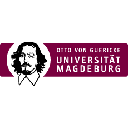Executive Secretary

11nd International Conference of Mechanical Engineering
COMEC2023
VI Symposium of Logistics and Quality Management
Abstract
Problem to deal with: In this paper, we investigate the conditions that must be met for modal shift, i.e. the transfer of freight transport from road to rail. In addition to describing the competitiveness conditions, the paper also makes technical and organisational proposals for rail freight traffic management. One of the most important conditions is that rail-road intermodal freight transport must be competitive in time and price with unimodal road freight transport. We have made concrete proposals to achieve this.
Aims: Establish a freight flow model that ensures competitiveness with unimodal road transport.
Methodology: The research method was to study the technical means (container handling) and cost structure of road and intermodal freight transport. The research also included the development of an efficient container handling procedure.
Results and Discussion: We have identified the conditions that need to be met to achieve modal shift and to significantly increase the share of rail freight. An efficient horizontal container handling, an adequate density of ITP points, and container trains with short tracking times are necessary to provide a freight service that is competitive in time and price.
Conclusions: A complex approach is needed to implement the freight transport model developed. In addition to the development of container handling, it is also necessary to build an ITP network, which is very different from the continental terminals currently used. Traffic should not be concentrated but deconcentrated. In addition, the regulatory environment in which the sector operates needs to be reviewed.Resumen
Problema a tratar: En este artículo investigamos las condiciones que deben cumplirse para el cambio modal, es decir, la transferencia del transporte de mercancías de la carretera al ferrocarril. Además de describir las condiciones de competitividad, el documento también hace propuestas técnicas y organizativas para la gestión del tráfico ferroviario de mercancías. Una de las condiciones más importantes es que el transporte intermodal de mercancías por ferrocarril-carretera debe ser competitivo en tiempo y precio con el transporte unimodal de mercancías por carretera. Hemos hecho propuestas concretas para lograrlo. Objetivos: Establecer un modelo de flujo de mercancías que asegure la competitividad con el transporte unimodal por carretera. Metodología: El método de investigación fue estudiar los medios técnicos (manipulación de contenedores) y la estructura de costos del transporte de mercancías por carretera e intermodal. La investigación también incluyó el desarrollo de un procedimiento eficiente de manipulación de contenedores. Resultados y Discusión: Hemos identificado las condiciones que deben cumplirse para lograr el cambio modal y aumentar significativamente la participación del transporte de mercancías por ferrocarril. Un manejo horizontal eficiente de contenedores, una densidad adecuada de puntos ITP y trenes de contenedores con tiempos de seguimiento cortos son necesarios para brindar un servicio de carga competitivo en tiempo y precio. Conclusiones: Se necesita un enfoque complejo para implementar el modelo de transporte de mercancías desarrollado. Además del desarrollo de la manipulación de contenedores, también es necesario construir una red ITP, muy diferente de las terminales continentales utilizadas actualmente. El tráfico no debe concentrarse sino desconcentrarse. Además, es necesario revisar el entorno regulatorio en el que opera el sector.
About The Speaker

Prof. Dr.-Ing. PhD László Vida

Discussion



